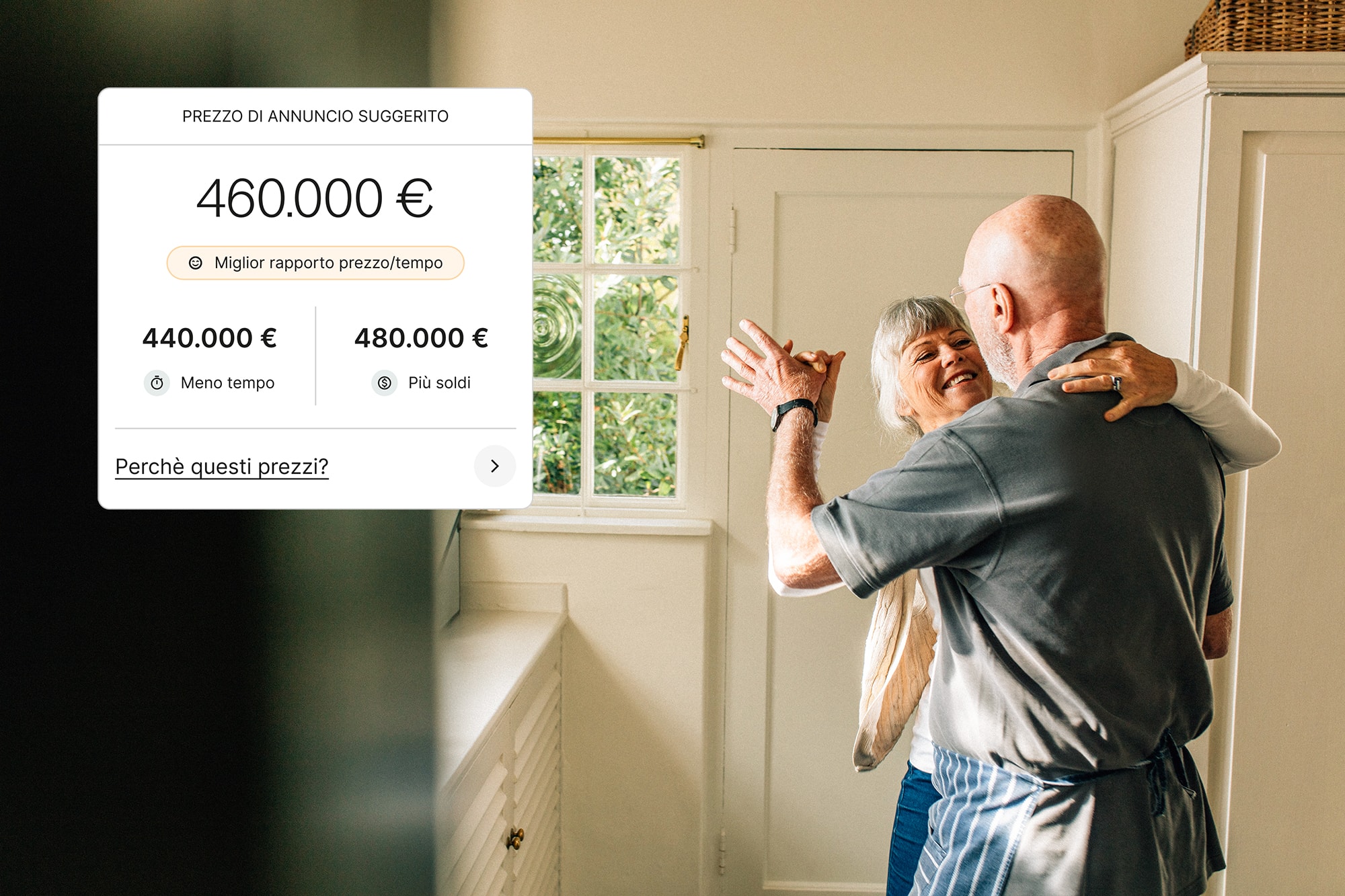Index
Selling a donated property may seem like a complex process, but with the right guidance, it can be much more manageable. When you receive a gift of property, there are several legal and bureaucratic steps to follow to sell it properly. This practical guide will walk you step by step through each phase of the process, from verifying the necessary documentation to managing taxes, all the way to closing the sale. By following this advice, you'll be able to approach the sale of your donated property with confidence and peace of mind.
[cta-casavo title="Sell your home. Fixed commissions at 1%." text="The valuation is instant and free."]

Introduction to the sale of donated properties
Why sell a donated property
There are several reasons why you might consider selling donated property. First, there may be an immediate financial need; selling the property can provide useful liquidity to cover unexpected expenses or investments. Second, the property may be located in a location that is not convenient for you, making it difficult to manage and maintain. Furthermore, the process of managing a property can require time and resources that you might prefer to allocate to other activities. Finally, selling donated property can also avoid potential family conflicts related to ownership and its management. Considering these factors, selling donated property can be a practical and advantageous decision.
Advantages and disadvantages of selling
Selling donated property has both advantages and disadvantages that should be carefully considered. Among the main advantages is the immediate availability of cash, which can be reinvested in other more profitable opportunities or used to cover urgent expenses. Furthermore, getting rid of a property you're not using can reduce management and maintenance responsibilities, saving time and resources.
On the other hand, there are also some disadvantages. Selling a donated property may result in capital gains taxes, which can reduce the net profit. Furthermore, the sale process can be lengthy and complex, requiring time and attention to handle all the legal and bureaucratic formalities. Finally, selling a property of sentimental value can be emotionally difficult, especially if it is tied to significant family memories.
Required Documentation
Certificate of Donation
The certificate of donation is one of the essential documents to have when deciding to sell a property received as a gift. This document certifies the transfer of ownership of the property from the donor to the donee and must be in writing and notarized. The certificate contains all relevant information about the property, including land registry data and any existing mortgages or liens.
Before proceeding with the sale, it is essential to verify that the gift certificate is complete and up-to-date. Any discrepancies or omissions could slow down the sale process or, worse, invalidate the transaction. If you do not have the original certificate, you can request a copy from the notary who drafted the gift deed. Be sure to keep this document in a safe place until the sale is completed.
Cadastral Survey and Floor Plan
The cadastral survey and floor plan are essential documents for the sale of a donated property. The cadastral survey provides detailed information about the property, such as the cadastral income, cadastral category, and property identification data. This data is crucial for determining the value of the property and calculating any taxes due.
The floor plan, on the other hand, is the graphic representation of the property, showing the internal layout of the rooms and any structural changes made over time. Having an updated floor plan is essential to avoid problems during the sale process, as any discrepancies between the floor plan and the current state of the property can cause delays or even block the sale.
To obtain these documents, you can contact the Revenue Agency or request them online through the Land Registry's online services. It is important that they are updated and accurately reflect the state of the property to ensure a smooth transaction.
Deed of provenance
The deed of provenance is a crucial document for the sale of a donated property, as it certifies the ownership and legal history of the property. This document may be a notarial deed of gift, a court judgment, a deed of sale, or any other document demonstrating legal ownership of the property.
The deed of provenance must be presented to the notary who will handle the sale to verify that there are no liens, mortgages, or other encumbrances that could impede the transaction. It is essential that the deed is complete and up-to-date, including all annotations and transcriptions in the land registry.
If you do not have the deed of provenance, you can request a copy from the notary who drafted the original deed or from the Land Registry Office. Keeping this document in good condition is essential to ensure a quick and hassle-free sale.
Legal Procedure
Consulting a Notary
Consulting a notary is an essential step in the sale of a donated property. The notary is responsible for verifying the validity of all documents, including the donation certificate, land registry, floor plan, and deed of provenance. Furthermore, he or she ensures that there are no legal liabilities or mortgages that could impede the transaction.
The notary will also draw up the deed, the public deed of sale, which formalizes the transfer of ownership from the current owner to the new buyer. During this process, the notary will offer legal advice, clarifying any doubts and ensuring that all parties understand the terms of the agreement.
It's important to choose a trusted notary with experience in real estate transactions, as a qualified professional can prevent legal issues and ensure the transaction goes smoothly and legally. Be sure to schedule a consultation with the notary as soon as possible to avoid delays.
Stipulating the preliminary sales agreement
The preliminary sales agreement, also known as a compromiso, is a contract that commits both parties—the seller and the buyer—to complete the real estate transaction under certain conditions. This document is essential because it establishes the terms and conditions of the sale, including the price of the property, the payment methods, and the date by which the notarial deed will be executed.
The preliminary sales agreement must be carefully drafted and, preferably, with the assistance of a notary or lawyer to ensure that all clauses are clear and legally valid. Once signed, the preliminary sales agreement can be registered with the Revenue Agency to provide greater legal protection for the parties involved.
Drafting a detailed and accurate preliminary sales agreement reduces the risk of future disputes and ensures that both parties have a formal and binding commitment. This step is essential to proceed smoothly towards the deed and the conclusion of the sale.
Registration of the contract
Registration of the sales contract is a crucial step in the legal procedure for the sale of a donated property. This process takes place at the Revenue Agency and gives official status and legal validity to the agreement stipulated between seller and buyer. Registering the contract also guarantees greater legal protection, preventing any third parties from claiming rights to the property.
To proceed with registration, it is necessary to submit a series of documents, including the preliminary sales agreement, the deed of origin, the land registry certificate, and the floor plan. Additionally, registration fees are required, which vary based on the value of the property and the specific circumstances of the sale.
Registration must be completed within 20 days of signing the preliminary contract. Delaying this step could result in penalties and legal complications. Ensuring that everything is in order and that the documents are submitted correctly is essential for a smooth and legally secure transaction.
Valuation and market price
How to Value a Property
Valuing a property is a fundamental step in determining a realistic and competitive selling price. The first step is to compare it with similar properties in the same area. This will give you an idea of the current market value. It's helpful to consult recent real estate listings and sales reports for up-to-date information.
Another option is to consult an experienced appraiser or real estate agent. These professionals can provide an accurate valuation based on various factors, such as location, property condition, square footage, and specific features. A detailed analysis will allow you to establish a price that reflects the true market value.
Finally, don't forget to consider any improvements or renovations that could increase the property's value. Investing in small changes can make the property more attractive to potential buyers, facilitating a quicker sale and at a better price.

Factors That Influence the Price
Several factors can influence the selling price of a donated property. Location is one of the main factors to consider: properties located in central areas or well-served by infrastructure and services tend to have a higher value. Proximity to schools, public transportation, parks, and shops can significantly increase the attractiveness and price of the property.
The condition of the property is another crucial factor. A well-maintained property, with updated electrical and plumbing systems, and without the need for major renovations, will have a higher market value than one that requires work. Energy efficiency can also affect the price: properties with high-class energy certifications are more desirable and can sell for a higher price.
Finally, the general economic environment and market demand influence the price. In periods of high demand and low supply, prices tend to rise. Monitoring market trends can help you choose the right time to sell and get the best possible price.
Pricing Strategies
Establishing an effective pricing strategy is essential to selling a donated property for the best possible value and in the shortest possible time. One of the most common strategies is to set a price slightly below the estimated market value. This can attract more potential buyers and create a sense of urgency, leading to competitive offers.
Another strategy is to set a price slightly above the market value, leaving room for negotiation. This approach can be useful if the market is growing or if the property has unique features that make it particularly desirable.
You can also adopt a flexible pricing strategy, in which you are willing to revise the price based on initial feedback from potential buyers. Carefully monitoring market reactions and making adjustments is essential to finding the optimal price, in line with the provisions of the Civil Code, which regulates every aspect of real estate sales.
Finally, offer transparency on any additional costs or taxes, so as to avoid surprises for the buyer and facilitate a more peaceful and speedy negotiation. Remember to always comply with the regulations set forth in the Civil Code regarding sales and taxes to ensure a legally compliant process.
Conclusion and useful tips
Mistakes to avoid
When selling a donated property, it is important to avoid some common mistakes that could complicate the process or reduce the final profit. One of the most common mistakes is not adequately preparing the necessary documentation. Make sure all documents, such as the gift certificate, land registry certificate, and deed of ownership, are complete and up-to-date.
Another mistake is setting an unrealistic selling price, either too high or too low compared to the market. This can drive away potential buyers or cause financial loss. Perform a thorough appraisal and consider current market conditions.
Ignoring the importance of property maintenance and presentation is another mistake to avoid. A well-maintained and attractively presented property can make a big difference in the selling process.
Finally, failing to consult qualified professionals such as notaries, real estate agents, and lawyers can lead to legal and bureaucratic complications. Investing in professional advice can facilitate the process and prevent problems.

Tips for a quick sale
To sell a donated property quickly, it is essential to follow some practical advice that can make the difference. First of all, make sure that Make sure the property is in excellent condition: make minor repairs, thoroughly clean, and consider making cosmetic improvements to make it more attractive. From the buyer's perspective, presentation is everything.
Second, set a competitive price based on an accurate market assessment. Avoid overestimating the property's value, because a realistic price will attract more potential buyers and facilitate a quick sale.
Marketing is crucial. Use online platforms, social media, and real estate agencies to promote the property. From the seller's perspective, high-quality photos and detailed descriptions can make a big difference.
Finally, be flexible in negotiations and ready to respond quickly to viewing requests. Availability and prompt responses can significantly speed up the sales process, leading to a quicker and more satisfactory closing.
Casavo simplifies the sale of a property, eliminating complexities and accompanying the seller through every stage of the process. From gathering and verifying documents to arranging viewings, from negotiations with potential buyers to meeting with the notary, Casavo offers comprehensive support. Thanks to innovative solutions, Casavo manages every detail smartly, allowing you to obtain a precise valuation based on millions of data points and discover interested potential buyers.
Frequently Asked Questions
When selling a donated property, some common questions often arise that can affect your peace of mind and the way you organize your life. One of the most frequent concerns the taxes to be paid. In addition to registration taxes, you may need to pay capital gains tax if the property is sold for a price higher than its original value. It's important to plan carefully to avoid surprises and ensure a transaction that doesn't complicate your financial life.
Another common question is whether renovations are necessary before the sale. While not mandatory, improving the condition of your property can increase its market value and speed up the sale. Investing in small improvements could streamline the process and make life easier for the future buyer, making the property more attractive.
Many also wonder how long it takes to complete a sale. The time varies based on several factors, but generally, once all the documentation has been collected and verified, the process can take anywhere from a few months to a year. Getting organized in advance and having all the documents ready can make a difference and make the process less stressful for your daily life.
Finally, another question concerns the importance of consulting a notary. A notary is essential to ensure that all legal aspects of the sale are handled correctly, thus preventing potential future problems and allowing you to experience the transfer of ownership with peace of mind.
Casavo is revolutionizing the real estate market with its innovative model, making selling a property transparent, easy, and fast. Offering a digital service and transparent commissions, Casavo provides dedicated support at every stage of the process. After obtaining an instant valuation of their property based on databases such as the Real Estate Market Observatory (OMI), sellers can manage the entire sales process remotely, using apps, email, or by contacting real estate consultants directly Casavo.
[cta-casavo title="Sell your home with Casavo" text="✅ 1% fixed commission ✅ an expert always by your side ✅ document certification"]
